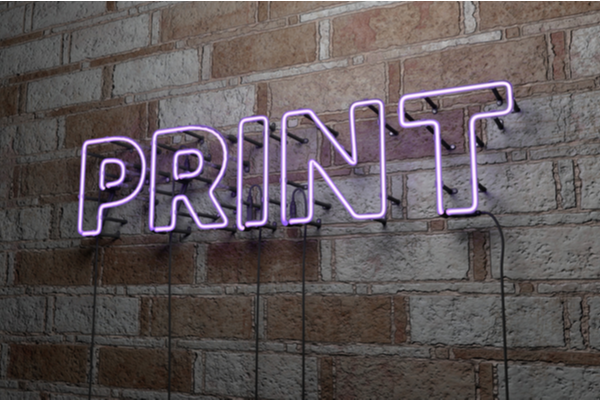
Marketing can be the lifeblood of a business. Because, ultimately, it does not matter how amazing your product is or what problem your service solves if the people who need it do not know it’s there. Getting information about your product or service in front of the people who want or need what you have to offer is the core goal of an effective marketing campaign. The question that all business owners should ask when considering any form of marketing is, ‘how can I most effectively reach my target audience?’
In the past, the only type of marketing strategies were the ones that now fall into the category of ‘traditional marketing’. With advances in technology, there is a whole new category of marketing known as ‘digital marketing’. Some business owners maintain a tight grip on their belief in the effectiveness of traditional marketing while others jump wholeheartedly on the digital marketing bandwagon and write off traditional marketing options completely. Which strategy is right? Are traditional marketing strategies still effective in today’s digital world? To answer these questions, you need to understand what qualifies as traditional marketing and what falls into the category of digital marketing. Once you understand how each type of marketing works you can decide which option is best for your business.
What qualifies as traditional marketing?
Marketing that is done through print, radio, television, or event sponsorships is considered traditional marketing. Putting an ad in the newspaper, a magazine, the yellow pages, or on a billboard all fall into the category of print advertising. Radio advertising includes commercials on the radio as well as paid mentions of your business by the radio personalities. Television advertising includes pre-recorded commercials, mentions by tv personalities, and live appearances during paid periods of time. Event sponsorship is a type of paid advertising that often utilizes mediums such as print, radio, and video.
Basically, any type of advertising that happens outside of the digital world can be considered traditional. Can these strategies still be effective in today’s digital world? The short answer is yes because people still encounter many types of traditional marketing in their daily lives. The question you should be asking, however, is, ‘can traditional marketing be an effective way to reach my target audience?’ Because, as mentioned above, the key to effective marketing is to get it in front of the people who want or need what you have to offer. For example, research shows that only 18% of the audience for local news falls into the 18 to 29 age range while 57% of the audience are 65 and older. If your target audience is 65+ then it makes sense to spend some of your advertising money on a traditional marketing method like television. If your target audience falls in the 18 to 29 age range, your advertising dollars will be better spent elsewhere.
What qualifies as digital marketing?
The phrase ‘digital marketing’ covers any type of marketing that is done online. This includes strategies such as sponsored posts and paid ads on social media, email marketing, inbound marketing, and video advertisements on YouTube and other streaming services. Digital marketing is a broad term that is used to describe a variety of advertising formats.
One big factor that sets digital marketing in general apart from traditional marketing is the ability to target very specific audiences. For example, paid ads on social media allow you to target the audience that will see your ad using factors such as demographics and behavior on the platform. Digital marketing also includes strategies like inbound marketing and email marketing which are methods that focus on attracting customers who are interested in what you have to offer – as opposed to casting a wide net and hoping that the right people notice your company. The ability to narrow the focus of your advertising allows you to reach the right people for a much lower cost.
How traditional and digital marketing can work together
For most small to medium businesses, there is a place for both traditional and digital marketing efforts in your overall marketing strategy. It all comes back to the audience you are trying to reach. If your research reveals that your audience regularly listens to radio then look into spending some of your advertising dollars in radio. If your research reveals that your audience attends certain types of events in the community, become a sponsor for some of those events.
Your audience is also online. There is no denying the explosion in online and social media activity that has happened over the decade. There are even devices and services on the market now that make it simple for senior adults to access information online and interact on social media. It is not a question of ‘if’ you should invest some of your advertising money in digital marketing, it is a question of ‘where’. What social media platforms does your target audience use most often? What type of online content does your target audience like to consume? Finding the answers to these types of questions will help you narrow down your options and choose the ones that will do the best job of reaching your target audience.
Traditional and digital marketing can work together by being in the same places where your target audience spends its time. You likely already know quite a bit about your target audience. Spend some time thinking about where the people in your target audience spend their time online and in the real world. This will help you decide what traditional marketing strategies will provide you with a return on investment and where you should focus your digital marketing efforts.
Traditional marketing strategies can still provide a return on investment if you apply them effectively and in conjunction with digital marketing strategies. The key to effective marketing – whether it is traditional or digital – is to know your audience. Knowing who you want to reach with your marketing efforts is the foundational element that you need in order to determine what marketing efforts will reach them.


Comments